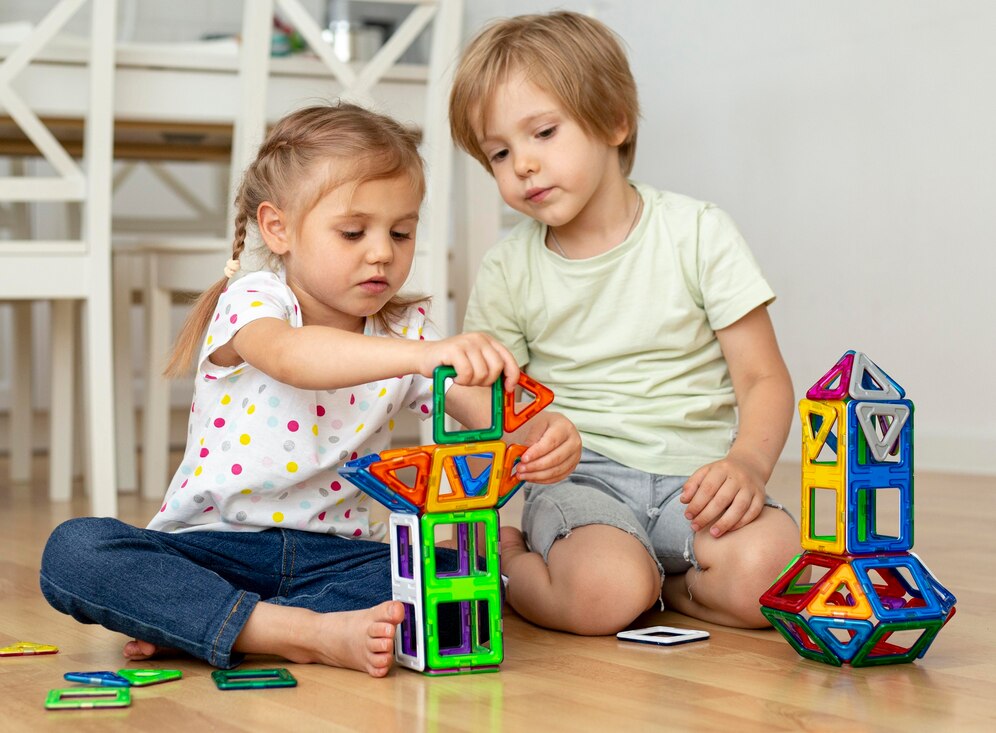
Blog
6 Ways to Teach Self-Discipline Skills for Kids with Educational Toys

Self-discipline is perhaps the most beneficial life skill that children must learn to be able to perform well academically, socially, and emotionally. The skills to regulate their impulses, maintain concentration, and control their emotions at a young age prepare them for success in the future. Perhaps one of the most fascinating and practical methods for teaching self-discipline to children is learning through toys. These learning toys do not learn for entertainment purposes alone, but also give children the chance to develop their patience, concentration, and problem-solving abilities naturally. The following are 6 smart ways of leading children to acquire self-discipline skills through learning toys:
1. Utilize Puzzle Games for Concentration and Building Patience
Puzzles aren’t enjoyable activities to engage in — they’re fantastic tools to build perseverance and concentration. While children complete puzzles, they are forced to learn, reflect, and carefully search for the correct pieces. They get them to concentrate for hours at a time, not give up easily, and deal with rage — all the recipe for self-control.
Parent Tip: Begin with easy puzzles and gradually progress to harder ones as your child’s abilities evolve. Acknowledge effort and perseverance, not outcome.
2. Use Building Blocks for Goal Setting and Planning

These kinds of toys include LEGO, magnetic tiles, and wooden blocks that encourage the children to make and apply their own masterpieces. In making models, children gain the ability to set goals, plan out what to do, and be judgmental while working on a problem in case it does not go as intended. This helps to improve delayed gratification since they get to do it step by step.
Tip for Parents: Encourage children to rebuild some models again or create something on their own. Praise their creativity and emphasize the need to work slowly and take directions to be successful.
3. Introduce Board Games to Teach Rule-Following and Turns

Board games like chess, checkers, memory, and strategy games are great aids to teach children about obeying rules, queueing, graciously winning, and graciously losing. They promote self-regulation, equity, and regard for rules, all of which are components of self-discipline.
Parent Tip: Engage the family to play board games regularly. Enforce rule obeying and sportsmanship prior to winning.
4. Utilize Educational Toys for management skills
Time-limited tasks or games, such as beat-the-clock tasks, quiz buzzers, or task-learning sets, teach children how to allocate time and accomplish tasks on time. This enables children to concentrate on work, perceive the significance of action, and remain distraction-free — all building blocks of self-control.
Parent Tip: Gently limit time for play and reward children for working peacefully and effectively. Avoid forcing but encourage enjoyment and achievement.
5. Promote Role-Playing Toys as Emotional Regulation
Role-play toys like doctor kits, kitchen play, and action figures enable children to role-play life situations. Role plays to teach children cooperative behavior, problem-solving, and emotion regulation. They also learn to react to difficult situations, thus improving emotional self-regulation and impulse control.
Parent Tip: Get in on the role-playing and generate situations that require patience and composed reactions, such as waiting in line or working with an annoying customer.
6. Engage in Trial-and-Error Learning Using STEM Toys

STEM toys such as robotics kits, coding games, and science experiment kits teach children to think logically, experiment with various solutions, and persevere through a process of trial and error. These toys teach children that errors are an inevitable part of the learning process and inspire them to adopt a growth mindset — an important aspect of self-discipline.
Tip for Parents: Get kids to keep trying when an experiment fails. Praise effort and thinking, not the perfect result.
Conclusion
It does not necessarily have to be a tiresome or cumbersome task in the teaching of self-discipline among children. Learning toys are utilized in the course of their day-to-day living to teach patience, focus, emotional control, and perseverance among children. Through these toys, life lessons turn into fun-filled activities that render learning productive and fun. As a teacher or parent, it is your responsibility to model, support, and lead by example, and self-discipline. Be a positive reinforcement of small successes, accept failure, and always promote effort and perseverance. With appropriate guidance and information on a day-to-day basis, children will learn self-discipline and turn into mature capable adults who can take over the world.
